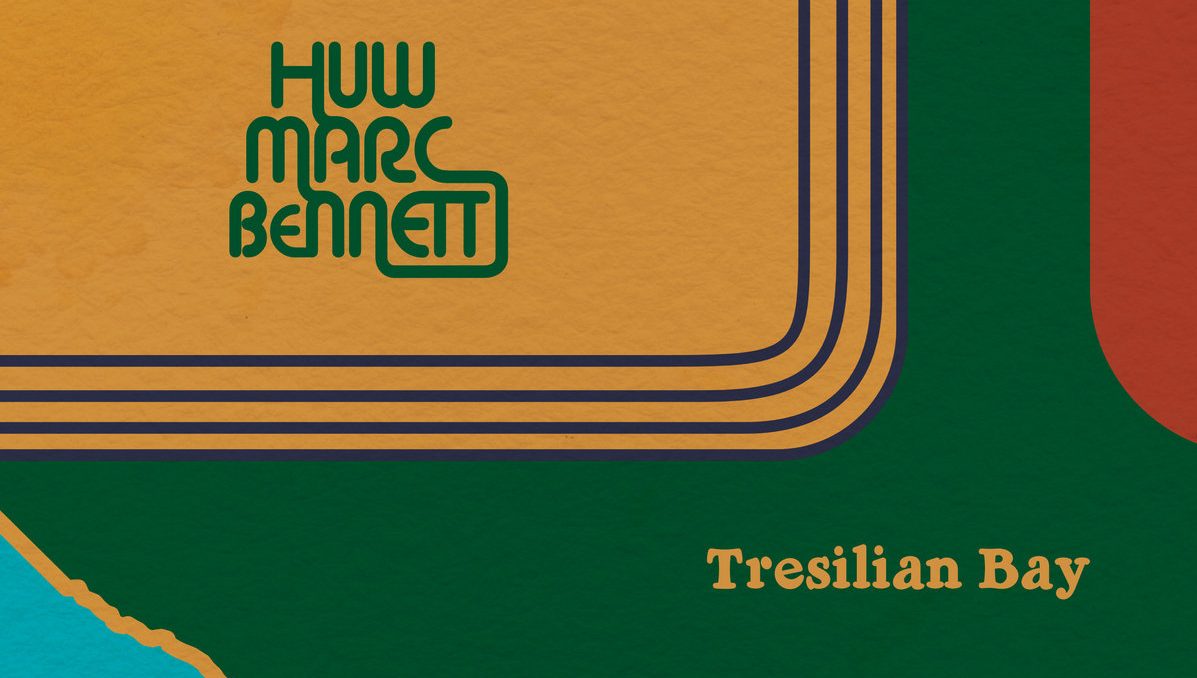EMERGING from the London jazz and groove scene, South Wales producer and bassist Huw Marc Bennett is a low-key enigma whose musical vision means he won’t stay that way for long.
What do we know of Huw? He’s a South Wales boy, as he evidences in the title of his debut LP, Tresilian Bay, named for that sea-and-cliffscape in Glamorgan where it swells south into the Bristol Channel.
We know he’s been active in the London jazz scene, a scene that’s so been so fertile in the past couple of years, operating out of the south-of-the-river borough, Lewisham – home at one time or another to Ginger Baker and Kate Tempest.
His last release was the Keira LP he recorded as part of Susso: a very fine Afrobeat collaboration between himself and the Suso and Kuyateh families of Gambia.
But perhaps most importantly, what we need to know is that with Tresilian Bay, Huw has emerged with a polychromatic vision, a jazz filled with highlife, funk, groove and the most luscious arrangements. The top line here is: he’s great.
Tresilian Bay comes encased in a sleeve that has warm 70s’ tones: sands, siennas, retro fonts. It looks like something cool you’ve fished out of the back of a crate in that cobwebbed, under-visited record store in an obscure suburb. Intentional or not, let’s thumb that sleeve open, place the record on the deck.
The album opens with “Blue Lias”, a track name which seems to have a really otherly, exotic feel; and it kind of is, although it’s also inherently of Huw’s homeland. It is, in fact, the Jurassic stones of the Tresilian Bay area, deposited when this area of Wales was about ten degrees further south, warmer and wetter. Oh: the song, you say? It opens on a steady, cool, guitar ‘n’ organ chug a la Money Mark, a crisp theme, before flutes, recherche percussion and a wordless chorus transport us. Massed brass interjects. There’s a lot going on, but there’s so much space for it all to breathe; it’s open and soulful.
“In My Craft” is built on a hot, repeating guitar riff, mellow-toned and played high up the neck. Highlife percussive patterns guarantee the adductors are gonna be flexing. Guitar breaks, brass, all contribute: the musicianship is of the highest standard, the feel is absolutely bang on, but nothing present is other than absolutely in service to the collective groove.
“Llew the Lion” – again Huw’s Brythonic heritage here, ‘Llew’ itself being the Welsh for lion – moves into a deeper, more northern soul groove, with beatific brass weaving tonal complexity across an electric piano vamp. There’s psychedelic whooshery, north African modes. It’s complex and bewitching.

“Glas” pulls back towards the kind of irresistible polyrhythmic patter of Tony Allen. It’s all about the brass and breaks, but there are touches of a real Welsh psych fizzing over it all, as if Gorky’s or a playfully minded Super Furries had been let at the faders on the effects. (‘Glas’ is the Welsh-Cornish word for both green and blue; as with Japanese, no distinction is made between the two).
We reviewed the title track and lead single here, and there is no need to do other but reprise that: a skipping broken beat gives you time to ease into the rhythm before it shifts up through bass brass, fluvial flute trills and Afrobeat cadences. Like everything herein, it mixes, it matches and it marries with absolute understanding.
Six tracks in and “Risk Of A New Age” is the first track to have a full lyrical dimension, courtesy vocalist Miryam Solomon. It’s detached, very cool, shading under a summer tree as the vocals skip a staccato silk across the Afro-psych littoral. “You know there / are / some / things / to let go of” is the hook: an understated appeal to remove the blocks to progression, to risk what this album points towards, delivered beat by beat, almost as a Morse transmission.
“Afon Colhuw”: named for a tiny river, all of a mile long, that feeds down into the Bristol Channel, is a heat haze of Rhodes licks, jazz guitar nodding at Grant Green. Brushed drums patter and swish.
OK. A concept. I detect one, perhaps; don’t @ me or throw Yes LPs in my general direction. What I see perhaps is Huw springing from the bedrock of Wales to hotter climes; that Cymric bedrock itself forged in more temperate climes, roughly approximate to the Mediterranean-bordering African nations. Is he bringing his west British nation home to its oldest musics?
Whatever, I’ll get my coat; but be assured that Tresilian Bay is as vivacious and multi-layered and explorable a splicing and realisation of a London/African/jazz/paych groove as you’re going to hear all year.
Huw Marc Bennett’s Tresilian Bay will be released by Albert’s Favourites on digital and vinyl formats on September 18th. You can order a copy here.














No Comment